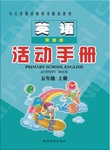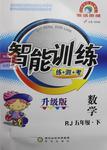



 互动课堂系列答案
互动课堂系列答案 激活思维智能训练课时导学练系列答案
激活思维智能训练课时导学练系列答案科目:高中英语 来源: 题型:阅读理解
查看答案和解析>>
科目:高中英语 来源: 题型:单选题
查看答案和解析>>
科目:高中英语 来源: 题型:阅读理解

查看答案和解析>>
科目:高中英语 来源: 题型:阅读理解
查看答案和解析>>
科目:高中英语 来源: 题型:阅读理解
查看答案和解析>>
科目:高中英语 来源: 题型:阅读理解
Driving Offence Points System
What is Driving Offence Points System?
After the introduction of this system, certain traffic offences will earn the driver points besides other punishment. If a driver makes any of these offences, the points will be recorded. When the driver gets a certain number of points, he will be forbidden to drive for a certain amount of time.
What are the purposes of this system?
This is a system designed to make road much safer. It can improve standards of driving and reduce the accident rates.
Which traffic offences will result in Driving Offence points?
Of course, not all traffic offences are covered by this system. Only those that have direct effect on road safety are included. There are altogether fourteen items.
| Code | Offence | Points |
| 1 | Causing death by dangerous driving | 10 |
| 2 | Dangerous driving | 10 |
| 3 | Careless driving | 5 |
| 4 | Driving after drinking or taking drugs | 10 |
| 5 | Driving over speed limit by more than 15 km/hour | 3 |
| 6 | Driving in a motor race on the road | 10 |
| 7 | Failing to stop after an accident | 3 |
| 8 | Failing to give information after an accident | 3 |
| 9 | Failing to report an accident | 3 |
| 10 | Failing to obey directions of police officers | 3 |
| 11 | Crossing double white lines | 3 |
| 12 | Failing to obey traffic signals | 3 |
| 13 | Failing to give way to walkers at a crosswalk Failing to stop for people walking | 3 |
| 14 | Failing to stop at school crossing | 3 |
What will happen if you have got up to 10 points?
If you have got 10 points or above, but still less 15 points, you will receive a warning letter from the Transport Department. This letter will tell your record of Driving Offence Points and remind you of the result of getting more points. It is hoped that this warning will change your driving behavior for the better.
What will happen if you have got 15 points?
If you have got 15 points or more within two years, a court will take away your driving license. The first time you are found guilty you will not be able to drive for three months, but if you are caught a second time you will not be able to drive for six months
查看答案和解析>>
科目:高中英语 来源: 题型:阅读理解
查看答案和解析>>
科目:高中英语 来源: 题型:阅读理解
查看答案和解析>>
湖北省互联网违法和不良信息举报平台 | 网上有害信息举报专区 | 电信诈骗举报专区 | 涉历史虚无主义有害信息举报专区 | 涉企侵权举报专区
违法和不良信息举报电话:027-86699610 举报邮箱:58377363@163.com